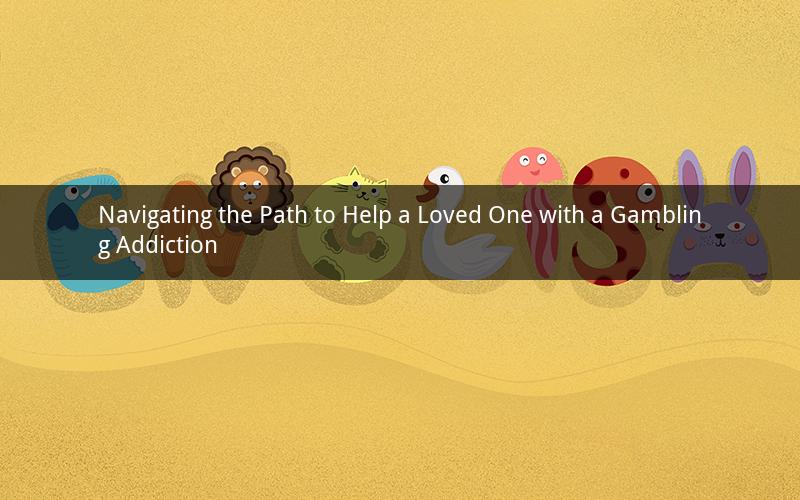
Introduction:
Gambling addiction is a complex issue that affects individuals and their families. Approaching someone with a gambling addiction can be challenging, but it is crucial to provide support and guidance. This article aims to explore various strategies on how to approach someone with a gambling addiction, ensuring a compassionate and effective approach.
1. Educate Yourself:
Before approaching someone with a gambling addiction, it is essential to educate yourself about the condition. Understanding the signs, symptoms, and consequences of gambling addiction will enable you to offer informed support. Familiarize yourself with resources such as helplines, support groups, and treatment options available in your area.
2. Choose the Right Time and Place:
Selecting the appropriate time and place to discuss the issue is crucial. Find a private and comfortable environment where both you and the individual can speak openly without interruptions. Ensure that the person is in a calm and relaxed state of mind to enhance the effectiveness of the conversation.
3. Express Concern and Support:
Start the conversation by expressing your concern for the individual's well-being. Use "I" statements to convey your feelings without placing blame or judgment. For example, say, "I am worried about your gambling habits and how it is affecting your life." This approach helps the person feel heard and understood.
4. Avoid Condemnation:
It is crucial to avoid shaming or condemning the individual. Condemnation can lead to defensiveness and resistance, making it difficult to have a constructive conversation. Instead, focus on the impact of gambling addiction on their life and the well-being of those around them.
5. Encourage Open Communication:
Create a safe space for the individual to express their thoughts and feelings. Listen actively and without interruption, showing empathy and understanding. Avoid interrupting or rushing the conversation. This approach helps the person feel validated and more likely to engage in the discussion.
6. Offer Information and Resources:
Provide the individual with information about gambling addiction, including its consequences and available support options. Share resources such as helplines, support groups, and treatment centers. Offer to accompany them to these resources if they are willing, demonstrating your commitment to their recovery.
7. Encourage Professional Help:
Encourage the individual to seek professional help from a therapist or counselor specializing in gambling addiction. A professional can provide personalized guidance and support tailored to their specific needs. Offer to assist in finding suitable professionals and accompanying them to appointments if needed.
8. Be Patient and Understanding:
Recovery from a gambling addiction is a gradual process that requires patience and understanding. Avoid pressuring the individual to make immediate changes or decisions. Recognize that setbacks may occur, and offer support during these challenging times.
9. Maintain Boundaries:
It is essential to maintain healthy boundaries while supporting someone with a gambling addiction. Avoid enabling their behavior by providing financial assistance or covering their debts. Encourage them to take responsibility for their actions and make amends when possible.
10. Support the Individual's Recovery:
Continuously offer your support throughout the recovery process. Attend support group meetings or therapy sessions with the individual if they are comfortable. Celebrate their successes and provide encouragement during difficult times.
Questions and Answers:
1. How can I identify if someone has a gambling addiction?
A gambling addiction is characterized by an inability to control gambling behavior, leading to negative consequences in various aspects of life. Signs include secretive behavior, borrowing money, neglecting responsibilities, and experiencing emotional and financial distress.
2. Can someone recover from a gambling addiction?
Yes, recovery from a gambling addiction is possible. With proper support, therapy, and treatment, individuals can overcome their addiction and lead a fulfilling life.
3. What if the person with a gambling addiction refuses to seek help?
If the individual refuses to seek help, it is important to continue offering support and expressing your concerns. However, it is crucial to understand that recovery is a personal journey, and the individual must be willing to take the first step.
4. How can I support a loved one during their recovery process?
You can support a loved one by being patient, understanding, and offering your unwavering support. Attend support group meetings, therapy sessions, or recovery events together. Encourage them to take responsibility for their actions and celebrate their successes.
5. Can gambling addiction affect family members?
Yes, gambling addiction can have a significant impact on family members. It can lead to strained relationships, financial strain, and emotional distress. Seeking support for the entire family is crucial in addressing the consequences of gambling addiction.